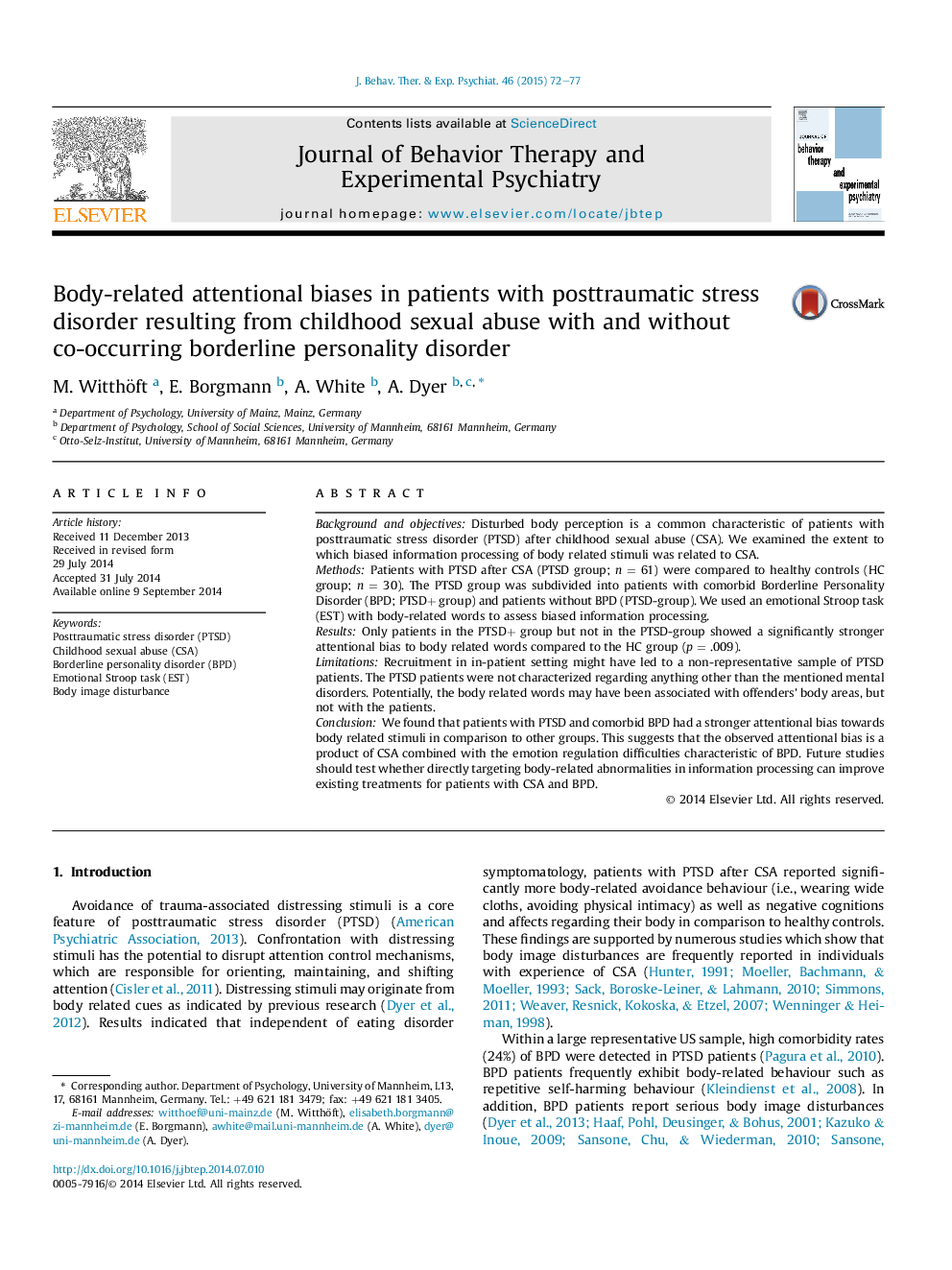| Article ID | Journal | Published Year | Pages | File Type |
|---|---|---|---|---|
| 910345 | Journal of Behavior Therapy and Experimental Psychiatry | 2015 | 6 Pages |
•Stronger bias to body related words in patients with PTSD + BPD compared to controls.•Abuse, borderline, and PTSD symptoms are related to body-related attentional bias.•Sexual abuse remained the only significant predictor variable for the attentional bias score.
Background and objectivesDisturbed body perception is a common characteristic of patients with posttraumatic stress disorder (PTSD) after childhood sexual abuse (CSA). We examined the extent to which biased information processing of body related stimuli was related to CSA.MethodsPatients with PTSD after CSA (PTSD group; n = 61) were compared to healthy controls (HC group; n = 30). The PTSD group was subdivided into patients with comorbid Borderline Personality Disorder (BPD; PTSD+ group) and patients without BPD (PTSD-group). We used an emotional Stroop task (EST) with body-related words to assess biased information processing.ResultsOnly patients in the PTSD+ group but not in the PTSD-group showed a significantly stronger attentional bias to body related words compared to the HC group (p = .009).LimitationsRecruitment in in-patient setting might have led to a non-representative sample of PTSD patients. The PTSD patients were not characterized regarding anything other than the mentioned mental disorders. Potentially, the body related words may have been associated with offenders' body areas, but not with the patients.ConclusionWe found that patients with PTSD and comorbid BPD had a stronger attentional bias towards body related stimuli in comparison to other groups. This suggests that the observed attentional bias is a product of CSA combined with the emotion regulation difficulties characteristic of BPD. Future studies should test whether directly targeting body-related abnormalities in information processing can improve existing treatments for patients with CSA and BPD.
